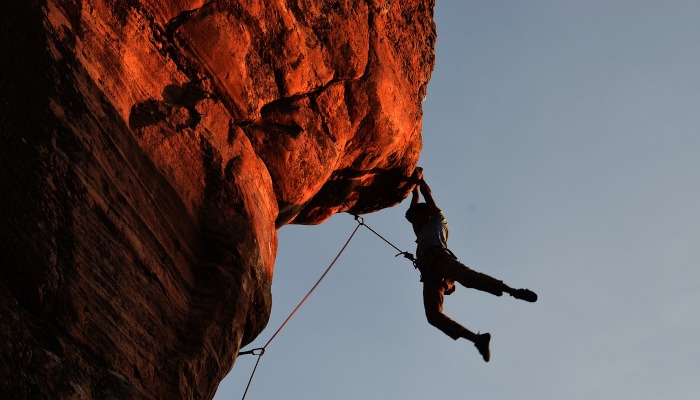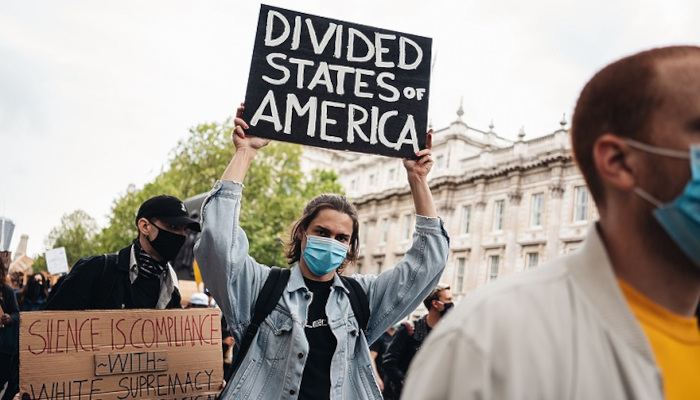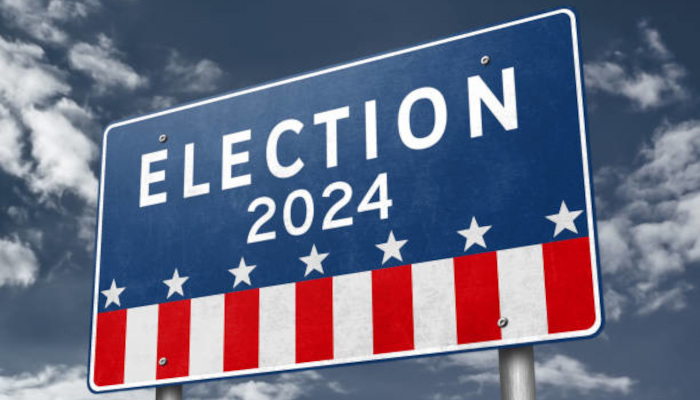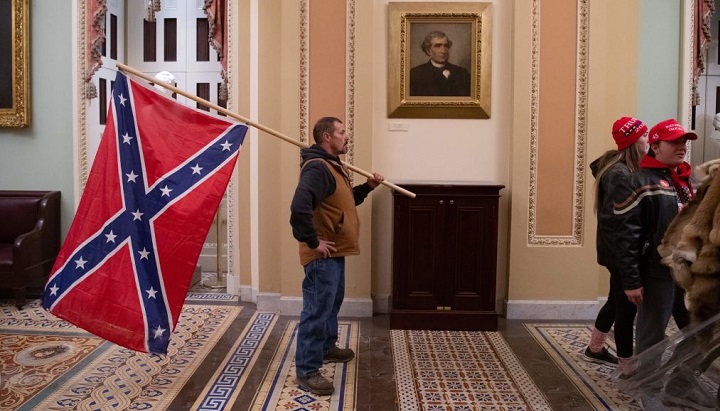
China or other countries should consider what makes the U.S. strong and decide, accordingly, with a very Italian coda.
On Jan 29, it’ll be the beginning of the year of the snake, a tricky time for everybody. It’s Chinese President Xi Jinping’s birth year 本命年. According to Chinese superstition, it can be very good or awful for him and anybody. Twelve years ago, it was excellent for him—against many odds, he accrued much more power than his predecessors.
This year? Here, I humbly propose a few ideas to consider, knowing full well that, as Caesar said, unsolicited advice is never welcome.
+++
The West’s actual forces and strengths are freedom and the rule of law. Because freedom and the rule of law underpin something very practical; it’s not just theory or ideals and so on. The practical aspect is that the rule of law, courts, lawyers, freedom of opinion, newspapers, think tanks and the media sustain Western markets, such as Wall Street, Nasdaq, Chicago, and London. Here, there is freedom, and they operate according to the rule of law—they couldn’t function without one or the other, and thus they have an objectivity trusted by anybody with money.
Today, The United States has about 28% of the global GDP, but this figure misrepresents the American real economic punch. The American market accounts for 64-65% of the worldwide stock market, meaning roughly two-thirds is in America. If you want money for your business, you must go to America. To start and grow a business, you must go to America. There are little or no alternatives. For Treasury bonds, America’s weight is equally significant; similarly, the U.S. markets condition the price of any currency. Even if the U.S. percentage of the global stock markets decreases due to a possible future financial crisis, the American position as a “price setter” won’t change in the foreseeable future due to its unique market positioning.
The U.S. also has military and political clout, but these can’t work alone; they are part of a very complex chemistry.
That is, the United States effectively has a near-monopoly on the ability to set prices for everything sold. Whether it’s glass, paper, steel, or anything else, the price at which we buy it is either determined or heavily influenced by the fact that it is quoted freely, openly, transparently, and according to specific rules in America widely accepted and recognized, trusted in the world.
This ability to set the price of everything is fundamental; it’s the most critical standard. It also influences the ability to determine what is good or bad and what has a low or high price, for example, in a broader value system.
Back to Barter?
If we remove this market freedom, the rule of law within which this freedom must operate, we return to a very primitive situation of exchanges based on barter or a market decided by the government—thus not free, thus partly or wholly opaque, heavily influenced by political will rather than the free exchange, and the rule of law.
However, exchanges based on barter, decided by government policies—for example, during the Soviet time—were highly inefficient. If you exchange one ton of steel for another, you must look at how that steel is made. What components are in it? Are the sheets long or wide, thick or thin? There are a ton of details that cannot be managed with simple barter.
A free market is more efficient, transparent, and faster (thus enabling more exchanges), and today, this market is dominated by America. There are no real alternative markets. Not too many trust the Chinese market, where the state heavily intervenes in influencing fluctuations up or down, where there is no freedom of information about the actual state of companies, and where there is no freedom of information about the policies decided in Beijing.
To be practically concrete, China, which had one of the three most important stock markets in the world—Hong Kong—has, in fact, slowly strangled its golden goose for the sake of stability and political control. It did so to avoid subversive contagion in the rest of the country by the 2019 democratic protests, but the long-term strategic cost has been enormous. China should have learned in time to manage and expand Hong Kong’s democratic process. It thought the American system could be dissembled and sorted out with a pick-and-choose strategy. Maybe it’s right, but perhaps it’s wrong.
Also, having Hong Kong, with its free press, was a way to participate in the global conditioning of all prices and values.
The BRICS, indeed, are an interesting organization, but can they have a massive influence on the market? Perhaps they can by organizing a cartel on the price of a commodity. However, such a cartel is not the market; it’s a form of syndicate, justified or not, but it doesn’t replace free exchange unless it aims to abolish free trade altogether. It would bring us back to primitive exchange.
It’s also tricky for the BRICS to launch an initiative against the dollar because they don’t have a free stock market regulated by a rule of law trusted by all other states. This requires many years of trust in the rules and in the press that monitors the rules and their application.
That said, we must not underestimate the BRICS challenge. The fact that so many states come together and express a converging interest means that the G7, a “club of the rich,” has become too exclusive—it excludes others. If the rich cannot speak to other developing countries, to most of the world’s population, there’s a problem.
It doesn’t mean America is powerless, but it must recognize some serious issues.
It’s doubtful that Russia can positively channel this dissatisfaction with the West. It didn’t succeed when it had a real Soviet empire. Today, it doesn’t have an empire; it has very clever strategic thinking but no real economy. It sustains the war supported by China. The Chinese economy, funding the Russian war, is at a crossroads—half market economy and half planned economy. It now faces a critical juncture: if it doesn’t decisively embrace the market economy at some point, its domestic economy risks suffocating, and, given the tariffs hitting Chinese exports, even its crucial trade surplus could become more fragile.
Criticize the West!
Moreover, there is a root of the criticisms of the West. Those who criticize the West because it criticizes itself don’t understand the real Western force. The West’s capacity for self-criticism is its great virtue, even if it sometimes becomes almost self-destructive. Tacitus, the Roman who described the Roman Empire by saying it made a desert and called it peace, was celebrating the strength of the Empire that conquered but also knew how to tell the story from another perspective.
This has a modern translation in Schumpeter’s theories of creative destruction. The liberal economy based on the rule of law has the dramatic force of destroying to create, creating to destroy. Other systems, to avoid destruction, end up not creating and thus wither and decay. So, the strength of the West is also its ability to be self-critical and to speak ill of itself. Therefore, barricading ourselves in a fortress to defend the West is not Western; it’s contrary to market freedom, which seeks to open to everything, even criticism, and to face it openly, precisely because criticism strengthens the market and us.
It is the great strength of a liberal society.
Of course, criticism must also be exercised with great wisdom and an ability to discern crucial facts. Here, we come to the problem of methods and tools. For example, Copernicus calculated that the Earth revolved around the Sun, not the other way around, but it took Galileo’s telescope to prove it definitively. So, the telescope is a tool, a method for seeing the facts. We need methods and tools to see the crucial facts. The scientific method, which also led to the capitalist and industrial revolution, is based on the possibility of falsification, but before falsification, it’s based on the careful collection of facts. However, careful collection of facts means a lot of hard work.
Building a telescope means a lot of effort, and it’s easy to give up on facts simply because collecting them is too exhausting. Instead, the critical recognition of facts and the acceptance of objective criticism based on facts is the engine of growth. This should be the foundation of journalism and information, especially in an era of uncontrolled information overload.
Responsible information is the basis for understanding where to go and even being opportunistic. I side with the winner; I don’t have to side with the loser.
Italy at last
This brings us back to Italy and the Italians. There’s a famous saying that during fascism, there were 40 million fascists, and after fascism, there were 40 million anti-fascists. Because justifiably, Italians are survivors in a system that, rightly or wrongly, they perceive as hostile, and so they adapt.
There’s no problem with this survival instinct and effort of the Italians.
The problem is that in trying to adapt to the winning force, Italians don’t always take the time to study and understand what the actual winning force might be. Those who were fascists before Mussolini’s fall didn’t realize the profound weaknesses of fascism. That, precisely to survive, they should have, if not become anti-fascists, at least distanced themselves from fascism.
Many pro-Putin tendencies exist in Italy today, and many believe in Putin’s strength. But this is the main mistake: if you don’t grasp reality, you’re not genuinely opportunistic—Italians are opportunistic superficially.
If those pro-Putin Italians were truly opportunistic, they wouldn’t side with Putin because Putin cannot win in Ukraine—he survives today thanks to China. He doesn’t have a market economy that is either partially like China’s or comprehensively like the West’s. It’s the market economy that succeeds and has driven all the growth of the last 200 years. The market economy means liberalism, freedom based on the rule of law. If we give up on this, we give up on the last 200 years of global development.
Of course, anything is possible, but…
Thanks to Giuseppe Rippa and David Goldman for the conversation and the inspiration










VERY well done.
Let me offer a thought on just how “precarious” this balance of “Rule of Law” actually is in practice and explain why that establishes the strength you discuss.
When things are open to complete discussion, it is only those new ideas that remain unquestioned after complete review that actually thrive.
Consider, for example, the Great Depression.
It actually started when a process that had been “accepted” as “the way to re-liquefy banks” from 1867 in the UK (and adopted in 1913 in the US) was declared to “impute fraud conclusively” by a unanimous US Supreme Court in 1925. Before the crash of 1929, for example, that ruling caused a decline of 25% in the value of outstanding mortgage backed bonds and froze the issuance of new ones in bulk transactions.
By 1933, the entire system by which all those great early 20th Century apartment buildings along Park Avenue were built and sustained had crashed.
YET, almost nobody except a few “white glove” lawyers understood why, and to this day most of the economists I know continue to deny the importance of that 1925 case.
WHY?
To start with, NOBODY CARES if a few thousand individuals ignore the ruling and do things that “impute fraud conclusively.” Trump has proved that again for all of us to see. He’s “technically defrauded” just about everyone he’s dealt with (in the sense of having misled them, by ignorance or mistake at least) and nobody cares. It’s just a couple hundred billion dollars and the people he mainly dealt with were banks that can absorb their losses.
When “rule of law” is challenged on a level that really matters (e.g., a multi-trillion dollar program to re-liquefy the US as we did after 2008), because we have a Congress that will ALWAYS “scapegoat” whomever ends up on the wrong side of any issue of importance, nothing will be done without an ironclad opinion by that group of “white glove” lawyers that whatever is done is entirely lawful.
Thus, when a crisis hit in 1929, and the 1925 USSC opinion prevented the “white glove” NYC firms (that rating agencies relied on for deals to get approved as entirely sound) could not opine as to the total legality of any deals to save the system, no deals to save the system were done until the FDIC was formed in 1933 (solving the issue but only for government deals). The private sector deals really only got entirely free of the 1925 case in October 2016.
Since nobody will want to be accused of failing to act, moreover, NOBODY REVEALED THE PROBLEM until it was finally fixed (mainly by the 2008 TARP law as far as the Fed was concerned).
My point is that this “rule of law” balance is VERY hard to construct because the nature of money is that near perfection is required to prevent flaws from causing massive setbacks.
Today, I can identify at least a dozen such flaws that could cause a crisis, Francesco, but until one of them gets ugly, nobody except a few experts cares.
Thus, crises continue to plague the US even though we are so far ahead of the rest of the world that the situation is actually quite unfair. I cannot for the life of me figure out how to do it better, however.